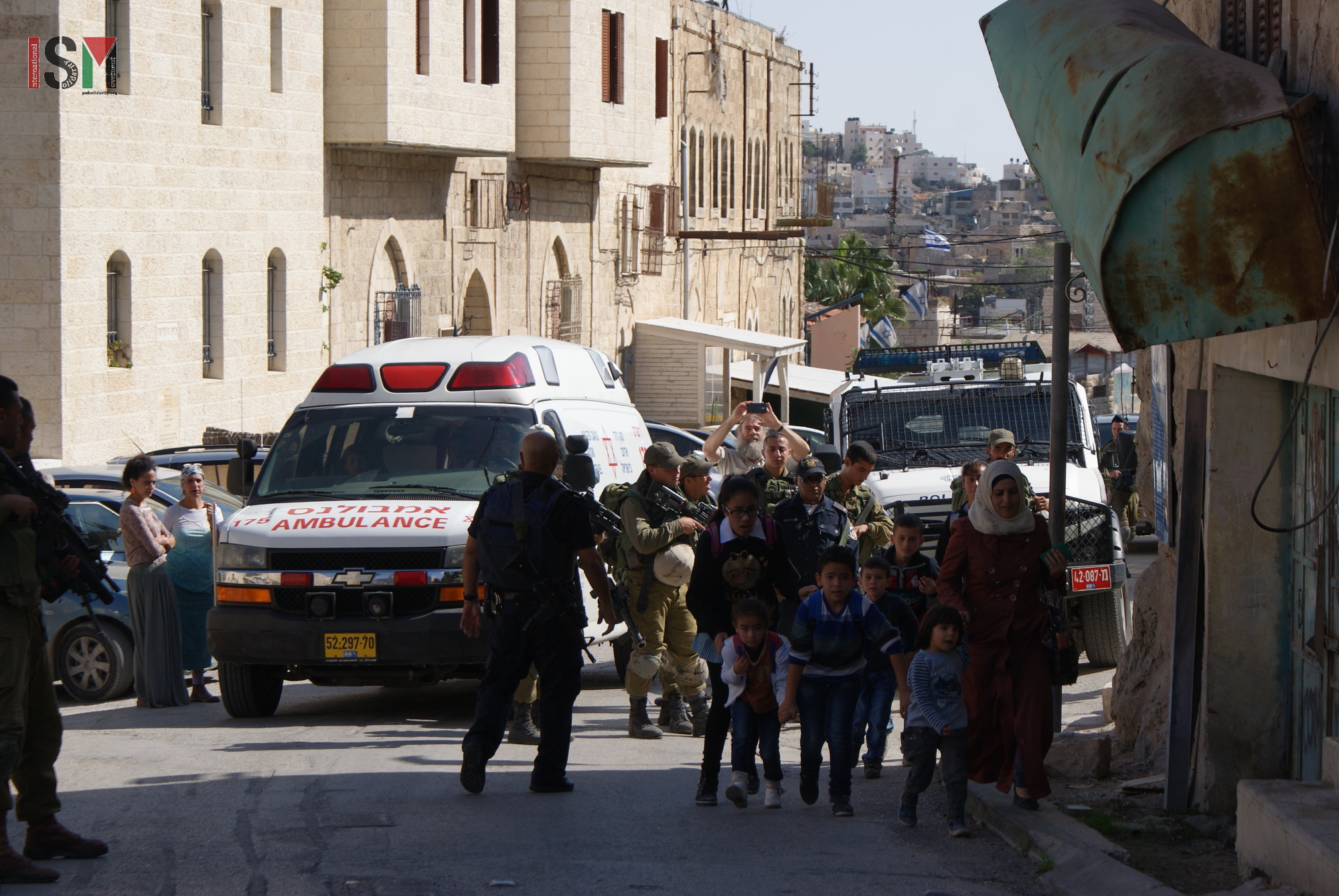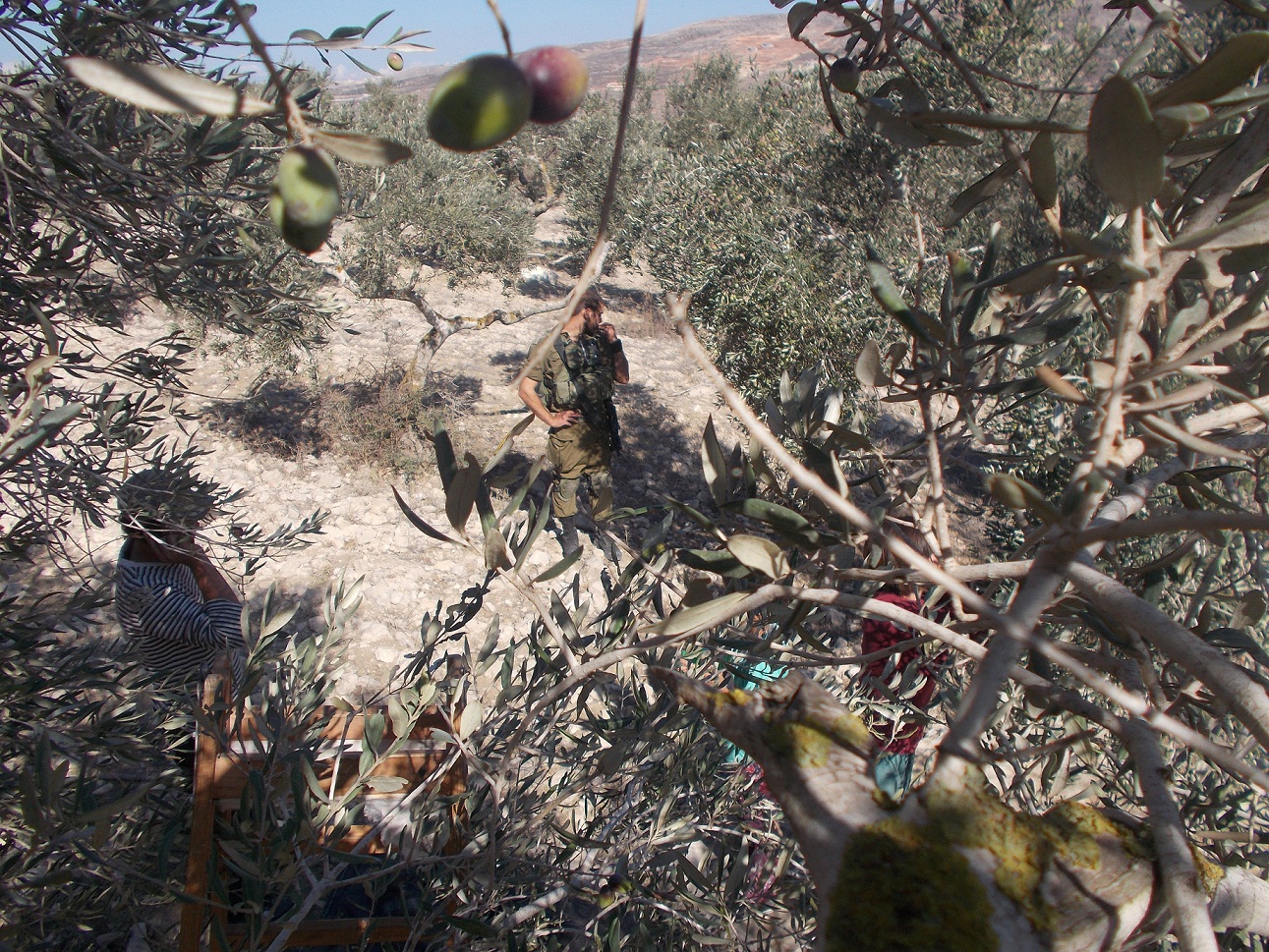Tag: Settlers
-
Israeli forces redouble brutal efforts to curtail and isolate Palestinians’ daily lives
1st November 2015 | International Solidarity Movement, al-Khalil team | Hebron, occupied Palestine On Sunday, 1st November 2015, Israeli forces prevented movement of Palestinians in various areas in al-Khalil (Hebron) that have previously been declared a ‘closed military zone’. Violence against school-children and teachers has seen a sharp increase. International observers documenting and reporting on…
-
Burin farmers once again prevented from picking their olives
1st November 2015 | International Solidarity Movement, Huwarra Team | Burin, occupied Palestine Yesterday, the 31st of October, close to the end of this year’s annual olive harvest, another family of farmers in the village of Burin, near Nablus in the northern West Bank, were again prevented from picking their olives by the Israeli army…
-
Israeli forces increase harassment of Palestinian school-children in al-Khalil (Hebron)
1st Novemeber 2015 | International Solidarity Movement, al-Khalil team | Hebron, occupied Palestine This morning at Qurtuba school in al-Khalil (Hebron), Israeli soldiers harassed school-children, teachers and adults trying to pass the nearby checkpoint. The stairs leading to Qurtuba school, the scene of a heinous murder of a Palestinian youth by Israeli forces three days…



